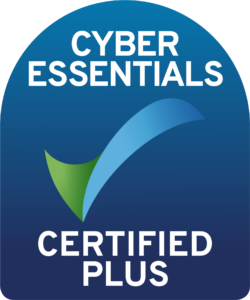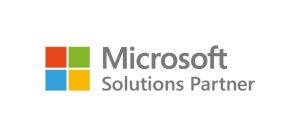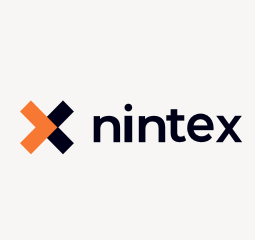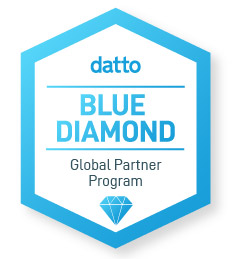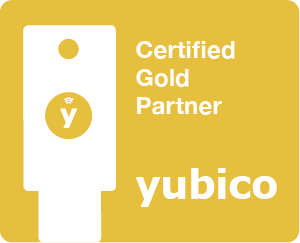This August sees Synergi celebrate its 7th anniversary, a truly exiting and humbling milestone. With this milestone comes the natural impulse to look back, not only on our history as an organisation but on the recent history of the industry that we call home. Digital transformation for all its popularity and importance is a relatively recent phenomenon, particularly with regards to the cloud-based forms of digital transformation that we are currently familiar with. Since we began back in 2013, Digital Transformation has itself transformed dramatically thanks to continued innovation and with this innovation digital transformation’s place in business has changed too from a luxury to a necessity. So, what are the big changes we’ve witnessed?
Less coding reliant
There was a point in the not too distant past in which digital automation of even the simplest tasks meant copious amounts of coding, but now digital leaders like Microsoft and Nintex are championing low-code/no-code automation tools making automation more affordable and accessible. These modern tools boast drag and drop capabilities and highly visual user interfaces meaning that users of varying technical literacy can own, map and automate their processes, taking the onus off IT managers who may previously have had to maintain and bear responsibility for all automated solutions. This ease of automation has arguably assisted in fostering a culture of improvement, in which teams own their own processes and therefore dedicate more time to mapping the operations surrounding these processes and reflecting on their efficiencies and inefficiencies.
More mobile-friendly
We expect a lot from our mobile nowadays, not only do we want good storage, a great camera, a lightweight design and a long battery life, we also want to be able to use our mobile to work on the go. With the variety of working styles, flexibility in working hours and diversity in working locations, the ability to work both remotely and on the go has become increasingly important. With mobile apps and forms, workers can capture data and file incidents onsite, ensuring more accurate data in recorded. One of the most recent innovations is e-signature, facilitating the signature of documents from a mobile device, keeping processes in motion even when you’re on the go. This mass migration to mobile working has allowed for business to operate in a more flexible manner.
More customer focused
Ultimately what any product or service provider wants is to offer their customer the best possible experience, so it’s no surprise that so much energy has been dedicated to using digital transformation tools to innovate and improve customer experiences. One of the most obvious changes you may have noticed in recent years is the emergence of customer service bots. Whilst some may argue that bots are an impersonal development in automation, it can be countered that bots can handle more than 75% of customer interactions providing relevant information and resources for those whose queries are commonly asked and doing so in a faster manner than a member of the customer support team may be able to. By allotting bots to handle frequently asked questions, this frees up time for the customer service team to focus on support inquiries that require extra attention, resource or information and consequently they can provide an improved customer experience.
Smarter AI
Following on from the customer-focused capabilities of bots, another key element to note in the development of recent digital transformation is the broader improvement of artificial intelligence (AI) particularly within robotic process automation (RPA). AI has been gradually making its way into the public eye, with the White House hosting its first AI Summit in 2018. In everyday life our most familiar contact with AI is likely to be the use of facial recognition as authentication, a feature leveraged by both Apple and Microsoft. Within business, one of the most common uses of AI is RPA. RPA is the automation of human and digital interfaces. In layman’s terms, if you can perform the action with a keyboard and a mouse, then RPA can automate that action for you. RPA operates using bots to which you assign tasks; these bots can non-invasively learn, adjust and scale as necessary. As AI becomes more affordable and accessible, we will likely start to see its presence in both business and our everyday lives grow.
More communication focused
As previously mentioned, the past 7 years have seen a popularisation of more flexible working styles. This variety in working hours and location has truly highlighted the importance of an effective communication solution. Consequently, we have seen great development under the umbrella of teamwork solutions with a particular surge in innovation in the past few years post the launch of Microsoft Teams in 2017. Teamwork has become about much more than just being able to direct message your colleague or share a document, with tools such as ideas management, real-time co-authoring, meta-data tagging, mobile intranet apps and more, teamwork tools have become hubs for collaboration and innovation and play a vital role in creating a sense of community within an organisation.
More data-led
Data, data everywhere. Business Intelligence is a component of business innovation that is difficult to showcase in isolation and this statement has only become more truthful as digital transformation tools have developed. Analytics are increasingly found as an available feature within other digital solutions such as automation metrics or intranet engagement analytics. The data recorded is then used to inform any changes and improvements to the solutions they are reporting on. Microsoft’s cloud-based BI offering Power BI for Office 365 was first unveiled in 2013 and was first released to the general public in 2015. When first launched, Power BI was based on the Excel-based add-ins Power Query, Power Pivot and Power View. However, over the years Power BI has developed and now positions itself as a scalable and secure business tool with hundreds of data visualisations, built-in AI capabilities, tight Excel integration, and prebuilt and custom data connectors.
Better integrated
Whilst discussing the development of digital transformation we’ve covered a lot of bases and this much was previously reflected in digital working, with users having to jump between multiple tools. However, one of the most notable aspects of modern digital transformation is omnichannel and integratable solutions. Microsoft are arguably leaders in this movement, with their business application hub, Dynamics 365, hosting a number of CRM, ERP and marketing tools and integrating with their larger Microsoft 365 platform, which provides not only a central SharePoint intranet and Office 365 applications but also enterprise mobility and security offerings. This push for integration does not end with Microsoft-owned tools, external applications can also integrate seamlessly allowing for greater flexibility and innovation within business solutions. By having a central hub from which one can access all their necessary tools, work becomes less frustrating and more efficient and productive.
It’s incredible to think how far digital transformation has come in the span of 7 years and at the heart of all these innovations is the drive to make business more flexible, efficient and ultimately more fun for all parties involved. With this drive for flexibility comes to the ability to develop solutions that work to address the specific individual needs of their users.
To find out more about digital transformation tools and what they could do for you get in touch by emailing enquiries@teamsynergi.co.uk or call 0191 4770365.
Learn a little more about us.
Check out Synergi’s last 7 years in our latest graphic.

